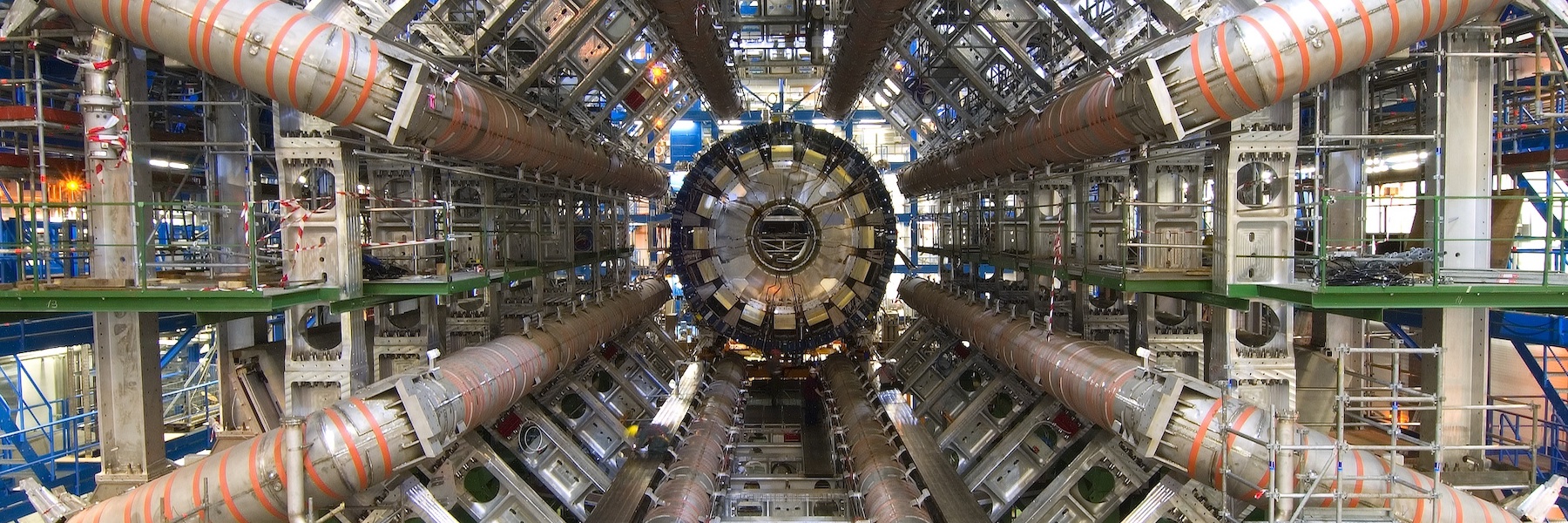The IU HEP collider group investigates the fundamental constituents of matter and forces through very high energy collisions of hadronic particles. Our research takes place primarily at the ATLAS Experiment, located at the CERN laboratory in Switzerland, and the DØ Experiment at Fermilab near Chicago.
If anything catches your interest, feel free to reach out to one of our members! We're always looking for talented people who are passionate about high-energy physics, data analysis, hardware design, and/or detector operation to work with.


